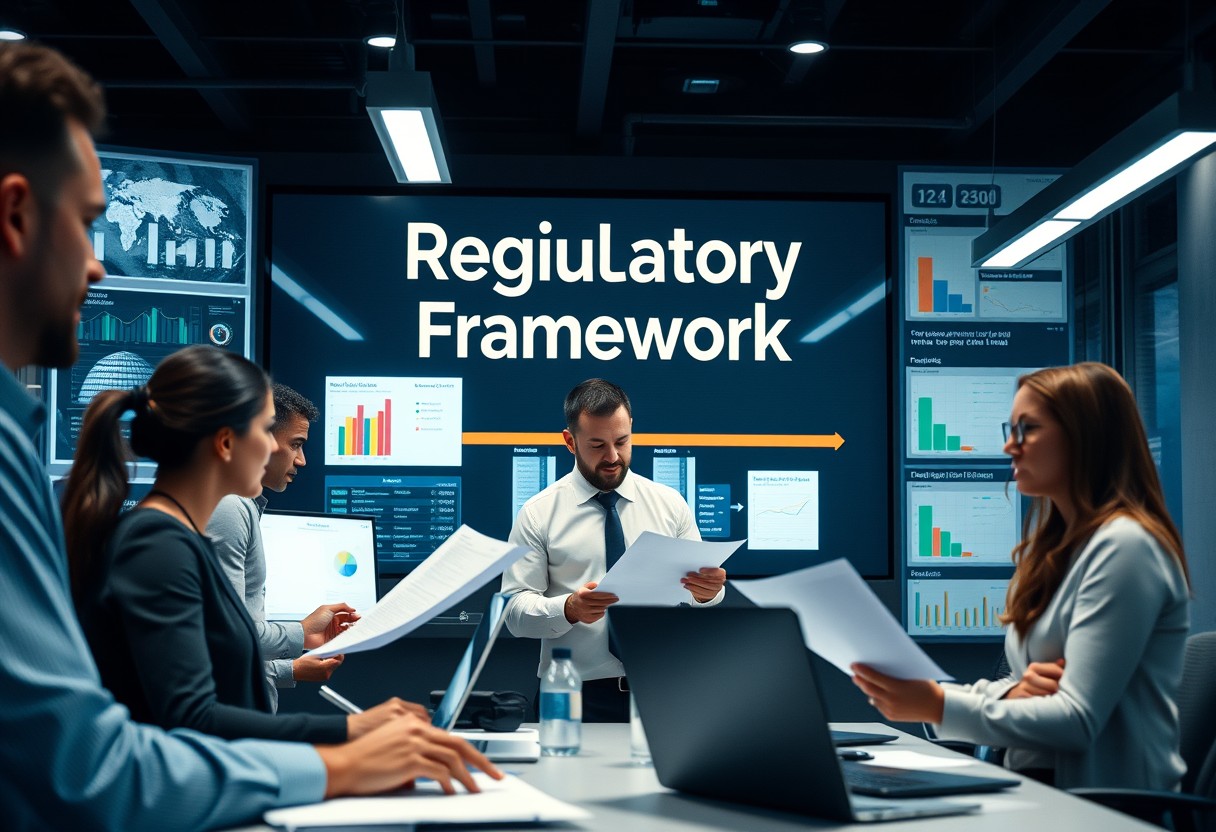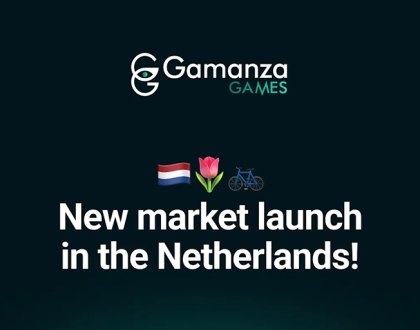Malta Gaming Authority’s Regulatory Framework

It's vital to assess whether the Malta Gaming Authority's (MGA) regulatory framework can effectively navigate the complexities of today's gaming environment. As the industry faces rapid technological advances, evolving consumer behaviors, and increasing scrutiny over compliance and ethical standards, they must ensure that their regulations remain robust and relevant. He, she, and they need to examine the current regulations' adaptability to emerging trends and challenges, while also considering stakeholder perspectives to foster a balanced approach to regulation in an ever-changing market.
The MGA's Regulatory Framework
Your understanding of the Malta Gaming Authority's (MGA) regulatory framework is crucial in assessing its effectiveness in addressing contemporary challenges within the gaming sector. This framework is designed to ensure compliance, uphold player protection, and maintain the integrity of Malta as a premier gaming jurisdiction. With the ever-evolving nature of the industry, stakeholders must examine whether these regulations are keeping pace with new developments.
Overview of Current Regulations
With a comprehensive suite of regulations in place, the MGA governs various aspects of gaming operations, including licensing, enforcement, and player protection. The authority employs a risk-based approach, tailoring its regulatory measures to address potential threats while promoting innovation and growth within the industry.
Strengths of the Existing Framework
One notable strength of the existing MGA framework lies in its robust compliance mechanisms, which ensure that operators adhere to high standards. This includes stringent licensing requirements and continuous monitoring of gaming practices, providing players with a safe and trustworthy environment.
Framework components such as effective licensing procedures and thorough audits demonstrate the MGA's commitment to maintaining an ethical and responsible gaming landscape. He or she can appreciate the authority's proactive stance in adapting to industry changes, integrating technology for improved oversight, and fostering collaboration with international regulators. Such strengths not only reinforce public trust but also enhance Malta's reputation as a leader in the global gaming sector.
Challenges Facing the Gaming Industry
Clearly, the gaming industry is confronted with numerous challenges that threaten its stability and growth. From rapid technological advancements to shifting consumer behaviors, regulatory bodies like the MGA must adapt in order to ensure a robust framework that can effectively respond to these evolving circumstances. As competition intensifies and player expectations shift, it becomes imperative for regulators to closely monitor these dynamics and revise their strategies accordingly.
Technological Advancements
For regulators, keeping pace with technological advancements presents a significant challenge. He or she must contend with the emergence of new gaming platforms, innovative payment methods, and evolving cybersecurity threats. As technology continues to change at an unprecedented rate, regulators are challenged to maintain effective oversight while also fostering an environment conducive to innovation and growth.
Changing Consumer Behavior
Consumer behavior is also undergoing a transformation, requiring regulators to adapt their approaches. They are increasingly drawn to mobile gaming, online platforms, and integrated social experiences, changing the landscape of the gaming industry.
Changing consumer preferences reflect a broader trend towards convenience, personalization, and social interaction in gaming experiences. As consumers prioritize mobile accessibility and seamless online engagement, regulators need to understand these shifts to create rules that address emerging risks while still appealing to the evolving desires of players. This requires ongoing research and communication between regulators and industry stakeholders to ensure that regulatory frameworks sufficiently respond to the needs of modern consumers.
Comparative Analysis with Global Standards
If one examines the MGA's regulatory framework, it becomes evident that a comparative analysis with global standards is crucial. By understanding how the MGA measures against international benchmarks, stakeholders can ascertain areas for improvement and adapt to evolving challenges in the gaming sector.
Comparison of MGA Standards with Global Practices
| MGA Standards | Global Practices |
|---|---|
| Licensing Transparency | Global Licensing Frameworks |
| User Protection Measures | Consumer Advocacy Norms |
| Anti-Money Laundering Guidelines | International Compliance Norms |
Best Practices in Regulatory Frameworks
For effective regulatory frameworks, she suggests that best practices must encompass transparency, accountability, and adaptability to technological advancements. These principles ensure that regulatory agencies remain relevant and can effectively oversee the industry while protecting consumer interests.
Lessons from Other Jurisdictions
Best practices from other jurisdictions provide valuable insights into enhancing the MGA's framework. By analyzing successful models, one identifies key elements that may strengthen regulatory practices within Malta.
Other jurisdictions, such as the UK and New Jersey, have implemented stringent compliance measures, fostering a transparent and accountable gaming environment. They prioritize consumer protection and employ rigorous enforcement actions, which can serve as a blueprint for the MGA. Adopting similar practices could empower the MGA to navigate contemporary challenges more effectively while ensuring industry sustainability.
Stakeholder Perspectives
Not all stakeholders are convinced that the MGA's regulatory framework is equipped to tackle contemporary challenges in the gaming industry. Different entities within the sector have varying viewpoints, shaped by their unique experiences and vested interests. As regulations are continuously evolving, he or she is keen to highlight the necessity for a collaborative approach to refine and enhance the framework, ensuring it can keep pace with rapid industry changes.
Industry Insights
Stakeholder feedback from industry insiders often emphasizes the need for regulations that strike a balance between innovation and consumer protection. They argue that an overly stringent regulatory framework could stifle growth and hinder new entrants from competing effectively. Industry representatives believe that a dynamic and collaborative approach could foster a healthier gaming environment.
Player Concerns
On the other hand, players express significant concerns about the efficacy of current regulations in safeguarding their interests. They often report feeling uneasy about the level of transparency and accountability required from operators, leading to fears of unfair practices.
Player involvement in the discussion surrounding regulatory frameworks is crucial, as he or she are directly impacted by the policies in place. Many players are particularly vocal about their desire for enhanced consumer protections, including clearer processes for dispute resolution and better safeguards against problematic gambling behaviors. They question whether the existing framework is sufficiently robust to address issues of fairness and transparency in operations. These perspectives illuminate the need for ongoing dialogue between regulators, operators, and players to foster a more secure and equitable gaming environment.
Recommendations for Improvement
Your insights into the current challenges faced by the MGA's regulatory framework can help drive meaningful reforms. To strengthen oversight, it is crucial for stakeholders to advocate for innovative approaches that adapt to rapidly changing market conditions while upholding high regulatory standards.
Enhancing Regulatory Adaptability
The need for a more agile regulatory framework is pressing, as the landscape of gaming and gambling continues to evolve. Stakeholders must promote ongoing dialogue and collaborative initiatives to ensure that regulations remain relevant and effectively address emerging issues.
Strengthening Enforcement Mechanisms
Recommendations to bolster enforcement mechanisms should focus on creating more robust systems for compliance monitoring. Enhanced penalties for non-compliance and improved investigative resources will deter potential violations and instill greater confidence among stakeholders.
It is necessary for the MGA to implement a multi-faceted approach to strengthening enforcement mechanisms. This includes utilizing advanced technology for monitoring operations, improving coordination with law enforcement agencies, and establishing clear guidelines for reporting violations. Such measures will not only deter misconduct but also enhance the overall integrity and credibility of the regulatory framework.
Conclusion
Conclusively, the MGA's regulatory framework faces ongoing scrutiny as it grapples with the complexities of today's gaming environment. They must continuously adjust their policies to address evolving technologies and emerging market trends. While the MGA has made significant strides in ensuring player protection and fostering fair competition, he, she, and they recognize that enhancing transparency and regulatory agility is vital for maintaining stakeholder trust. Thus, a proactive approach is vital to ensure that the framework remains robust and relevant in the face of current challenges.
FAQs
What is the Malta Gaming Authority (MGA)?
The MGA is the regulatory body responsible for overseeing and licensing gaming operations in Malta, ensuring compliance and player protection.
How does the MGA adapt to technological advancements?
The MGA employs a risk-based approach, continuously monitoring new gaming platforms and payment methods to ensure effective oversight.
What are the key strengths of the MGA's regulatory framework?
The framework features robust compliance mechanisms, including stringent licensing requirements and continuous monitoring to ensure a safe gaming environment.
What challenges does the gaming industry face today?
Challenges include rapid technological changes, shifting consumer behaviors, and the need for regulations to evolve to meet these dynamics.
How can stakeholders improve the MGA's regulatory framework?
Stakeholders can advocate for innovative approaches, enhance enforcement mechanisms, and promote ongoing dialogue to ensure the framework remains relevant.
Michael
With over 20 years experience in web design, SEO and website promotion I always give you an expert advice in regard to any issues related to your Site Design, SEO, Internet Marketing, Promotion, Backlinks, Site Content. In order to help you find out what is missing or can be improved and get higher rankings in Google and more traffic.
Recommended Posts

Gamanza Games Expands into the Dutch Market
October 5, 2024

Evolution’s Live Casino Studio Opens in Prague
October 5, 2024

Discover Mighty Symbols: Jokers by Wazdan
October 5, 2024




